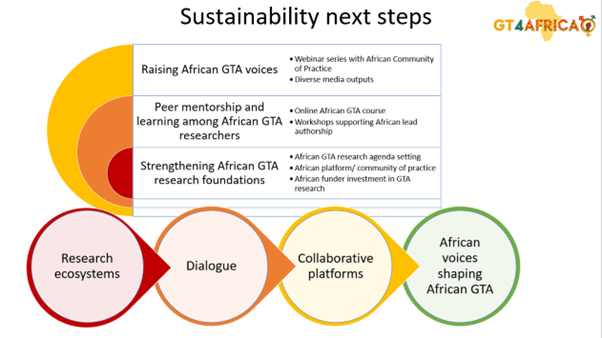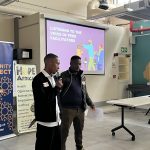
The School of Public Health-UWC, NACOSA, Hope Africa and Triangle Project launch a glossary of gender and sexuality terms in three South African languages
10 October 2025
18th World Congress on Public Health
16 October 2025
The School of Public Health-UWC, NACOSA, Hope Africa and Triangle Project launch a glossary of gender and sexuality terms in three South African languages
10 October 2025
18th World Congress on Public Health
16 October 2025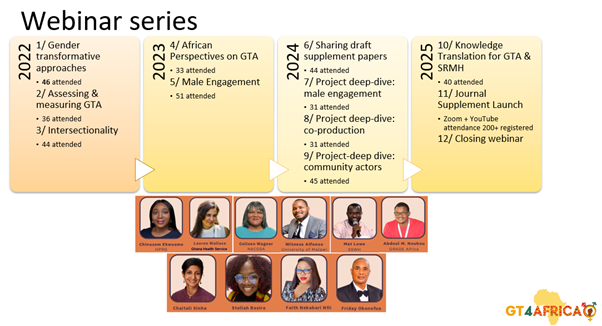
The first part of the closing webinar highlighted the journey and the various milestones. The cohort has convened 15 webinars, including conceptual and cohort-wide meetings, since its inception in March 2022. Several sessions were dedicated to co-learning on cross-cutting themes within the gender-transformative approach (GTA) for Sexual, Reproductive, and Maternal Health (SRMH) in Africa. These included foundational discussions on the conceptualisation, operationalisation, and measurement of gender-transformative programmes and interventions, followed by deep dives into key approaches such as intersectionality and male engagement. These early exchanges significantly shaped the design and implementation of six research projects conducted across seven countries.
The second half of the webinar focused on how each project grappled with conceptualizing, operationalizing, and assessing gender-transformative interventions. These sessions combined both collective and thematic discussions. Thematic streams emerged from recurring priorities across projects- namely co-production and co-learning, engaging frontline health workers, and male engagement- allowing for more targeted collaboration and peer learning.
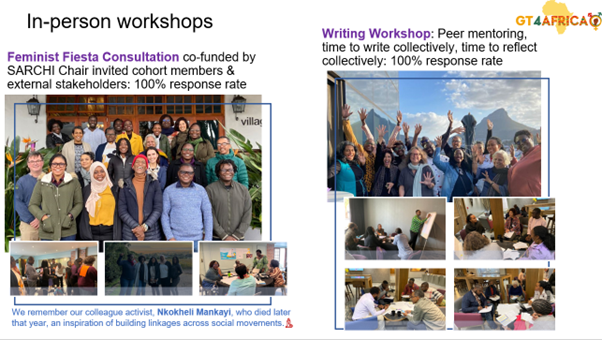
Beyond the online sessions, the cohort convened two in-person engagements in Cape Town. The first brought together cohort members researchers, practitioners, and advocates from diverse backgrounds for validation of qualitative research that amplified African voices on GTA for SRMH, alongside a mapping of literature and evidence on GTA interventions in Africa. The second was a writing workshop where authors reflected on the process of writing for publication, shared experiences, and received substantive feedback on draft papers. This effort culminated in the publication of a journal supplement comprising eight papers, highlighting strategies for operationalising GTA for SRMH in Africa.
The supplement, launched in July at a webinar co-convened by SOPH and UNU as part of the Africa Community of Practice on Gender and Health, was a milestone in cross-project collaboration. The event attracted more than 200 participants, including donors, regional bodies, civil society actors, and knowledge producers.
In its final stretch, the cohort also dedicated a webinar to exploring gender-transformative knowledge translation (KT) for SRMH- a timely and challenging topic that surfaced the complexities of power dynamics, vulnerabilities, and backlash in GTA interventions.
The closing webinar celebrated the cohorts’ achievements, the knowledge generated, and the lasting relationships formed. It also provided space to reflect on the endline survey, which, like previous annual surveys, offered valuable insights on governance, leadership, participation, and the effectiveness of the cohort. The figure below presents the reported benefits of involvement in the learning collaboration.
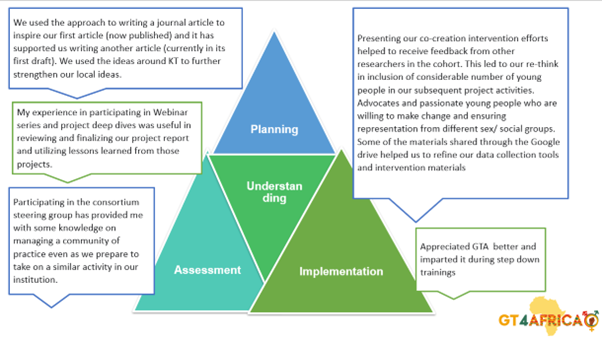
At the closing webinar, principal investigators shared reflections on progress made and what still needs to be catalysed to strengthen evidence on GTA in African contexts.
While this initial phase of GT4Africa concludes on a high note, with numerous milestones achieved, it is not the end of the collaboration. The cohort mapped out future strategies to sustain momentum and amplify African voices in advancing GTA for SRMH through multipronged and interconnected approaches.
